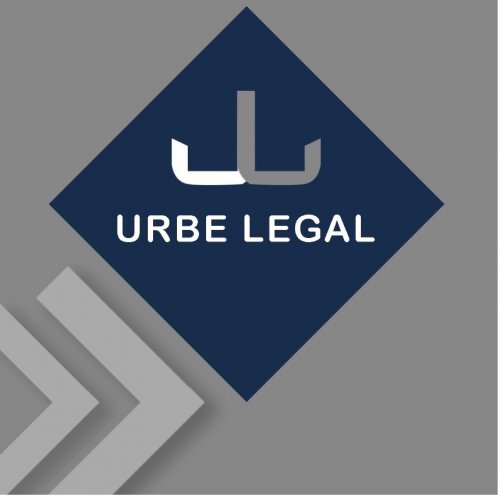Best Government Contract Lawyers in Guatemala
Share your needs with us, get contacted by law firms.
Free. Takes 2 min.
Or refine your search by selecting a city:
List of the best lawyers in Guatemala
About Government Contract Law in Guatemala
Government Contract Law in Guatemala governs the processes through which the state enters into agreements with private entities to procure goods, services, and public works. This system ensures transparency, accountability, and fairness in public spending. The legal framework aims to promote competition, prevent corruption, and ensure efficient use of public resources. Guatemala's government contracts are primarily regulated by the Law of Government Procurement (Ley de Contrataciones del Estado) and its regulations.
Why You May Need a Lawyer
Navigating the complexities of government contracts in Guatemala can be challenging. Here are some common situations where legal assistance might be necessary:
1. Understanding the procurement process: Legal guidance can help interpret the regulations and procedures involved in bidding and winning government contracts.
2. Drafting and reviewing contracts: A lawyer ensures that the terms and conditions align with legal standards and protect the client's interests.
3. Compliance issues: Lawyers help private entities comply with local laws and avoid potential legal pitfalls related to government contracts.
4. Dispute resolution: Legal experts can provide representation in cases of contract disputes or allegations of non-compliance.
5. Anti-corruption mechanisms: Legal professionals ensure adherence to anti-corruption statutes and adherence to ethical practices.
Local Laws Overview
Government Contracting in Guatemala is primarily governed by the Law of Government Procurement and its accompanying regulations. Key aspects include:
1. **Tendering Process**: Governed by transparent procedures to allow fair competition among potential suppliers.
2. **Contract Selection**: Contracts are awarded based on merit, price considerations, and capacity to deliver.
3. **Minor Contracts**: Regulations exist for smaller contracts, ensuring flexibility without compromising fairness.
4. **Obligations and Compliance**: Contractors must comply with all the legal requirements, including tax obligations and labor laws.
5. **Appeals and Revisions**: Legal avenues exist for contesting decisions or actions related to the awarding of contracts.
Frequently Asked Questions
What is the purpose of the Law of Government Procurement in Guatemala?
The Law aims to regulate government acquisitions and ensure that procurement processes are conducted transparently, efficiently, and fairly.
Who can participate in government contracts in Guatemala?
Both local and international vendors who meet the government's criteria can participate in the bidding process for contracts.
How are government contracts typically awarded?
Contracts are generally awarded through public tender processes, which evaluate various criteria, including price, quality, and bidder experience.
What are the primary obligations of a contractor under Guatemalan law?
Contractors must fulfill the terms and conditions specified in the contract, comply with local laws, including tax and labor regulations, and adhere to deadlines and quality standards.
Can decisions in the awarding of government contracts be appealed?
Yes, there is a formal appeal process for parties that wish to contest the decisions made during the procurement processes.
What role do anti-corruption policies play in government contracting?
Anti-corruption policies are crucial in ensuring ethical practices and preventing bribery and corruption in the procurement process.
Are there specific provisions for technology or infrastructure projects?
Yes, certain projects may have additional legal requirements or specifications to ensure compliance with technological and infrastructural standards.
What are the common penalties for non-compliance with contract terms?
Penalties can include fines, contract termination, blacklisting, and legal action by the state.
How can contractors ensure compliance with government contract laws?
Contractors should seek legal advice, thoroughly understand the legal framework, and adhere to all stated regulations and procedures.
Are there opportunities for small businesses in government contracts?
Yes, there are provisions to encourage the participation of small and medium enterprises, aiming for a diverse and competitive supplier base.
Additional Resources
For further assistance, the following resources may be beneficial:
- Guatemala’s Ministry of Public Finance (Ministerio de Finanzas Públicas) offers information and resources surrounding government procurement.
- The Guatemalan Chamber of Commerce provides seminars and workshops on legal compliance and opportunities in government contracting.
- Industry-specific trade associations often have resources and legal support for businesses interested in government contracts.
Next Steps
If you require legal assistance with government contracts in Guatemala:
1. **Consult with a Legal Expert**: Seek out a lawyer or legal firm specializing in government contract law for personalized advice.
2. **Prepare Documentation**: Gather necessary legal documents, past contract history, and business credentials that may be needed for legal proceedings or consultations.
3. **Participate in Workshops**: Engage in seminars and networks that focus on government bidding processes to stay informed.
4. **Stay Informed**: Keep abreast of any changes to laws and regulations that could affect government contracting processes and your potential to participate.
Lawzana helps you find the best lawyers and law firms in Guatemala through a curated and pre-screened list of qualified legal professionals. Our platform offers rankings and detailed profiles of attorneys and law firms, allowing you to compare based on practice areas, including Government Contract, experience, and client feedback.
Each profile includes a description of the firm's areas of practice, client reviews, team members and partners, year of establishment, spoken languages, office locations, contact information, social media presence, and any published articles or resources. Most firms on our platform speak English and are experienced in both local and international legal matters.
Get a quote from top-rated law firms in Guatemala — quickly, securely, and without unnecessary hassle.
Disclaimer:
The information provided on this page is for general informational purposes only and does not constitute legal advice. While we strive to ensure the accuracy and relevance of the content, legal information may change over time, and interpretations of the law can vary. You should always consult with a qualified legal professional for advice specific to your situation.
We disclaim all liability for actions taken or not taken based on the content of this page. If you believe any information is incorrect or outdated, please contact us, and we will review and update it where appropriate.
Browse government contract law firms by city in Guatemala
Refine your search by selecting a city.










